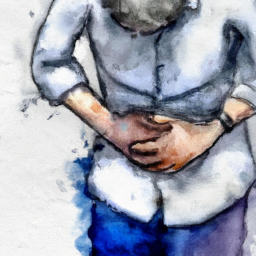
Stomach Ache After Eating: Causes, Symptoms, and Remedies
Have you ever experienced a stomach ache after eating? If so, you’re not alone. Millions of people worldwide suffer from this uncomfortable and sometimes painful condition. In this article, we’ll explore the causes, symptoms, and remedies for stomach aches after eating.
Causes:
There are several possible causes of stomach aches after eating. Some of the most common include:
1. Overeating: Eating too much food can cause your stomach to stretch, leading to discomfort and pain.
How to help Digestion After a Meal

2. Food intolerances: Some people are intolerant to certain types of food, such as lactose, gluten, or fructose. Eating these foods can cause stomach aches and other digestive problems.
3. Food poisoning: Consuming contaminated food or water can cause stomach ache, diarrhea, and vomiting.
4. Gastritis: Inflammation of the stomach lining can cause stomach aches, nausea, and vomiting.
5. GERD: Gastroesophageal reflux disease (GERD) can cause stomach aches, heartburn, and acid reflux.
Symptoms:
The symptoms of stomach aches after eating can vary depending on the cause. Some common symptoms include:
1. Abdominal pain or cramping
2. Nausea or vomiting
3. Bloating or gas
4. Diarrhea or constipation
5. Heartburn or acid reflux
Remedies:
Fortunately, there are several remedies that can help alleviate stomach aches after eating. Here are some of the most effective:
1. Drink plenty of water: Staying hydrated can help flush out toxins and reduce inflammation in your stomach.
2. Avoid trigger foods: If you have a food intolerance, avoid eating foods that trigger your symptoms.
3. Eat smaller meals: Eating smaller, more frequent meals can help prevent overeating and reduce stomach discomfort.
4. Practice stress management: Stress can exacerbate stomach aches and other digestive problems. Try practicing relaxation techniques such as deep breathing, meditation, or yoga.
5. Take over-the-counter medications: Over-the-counter medications such as antacids, acid reducers, and anti-diarrheal drugs can help alleviate stomach aches and other digestive symptoms.
When to see a doctor:
If your stomach aches after eating are severe or persistent, it’s important to see a doctor. They can help diagnose the underlying cause of your symptoms and recommend the appropriate treatment. In some cases, stomach aches after eating can be a sign of a more serious condition, such as an ulcer or inflammatory bowel disease.
